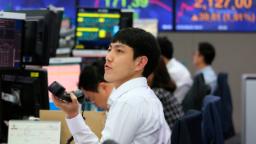Unlocking Opportunities: Understanding Asian Market Trading Hours

The Asian markets play a vital role in the global economy, and then for traders and investors worldwide, knowing when these markets open is important for making informed decisions and capitalizing on investment opportunities. In this article, we will explore the asian markets and the significance of their opening times.

Asian Market Overview
The Asian markets encompass a diverse range of economies, from Japan and China to Columbia and India. These markets are instrumental in shaping regional and global economic trends, which makes them of particular interest to investors and traders. To maximize their engagement with Asian markets, individuals should be aware when they are open for trading.
Asian Market Trading Hours by Region:
Tokyo Stock Exchange (TSE):
Opening Time: 9:00 AM JST (Japan Standard Time)
Closing Time: 3:00 PM JST
Lunch Break: 11:30 AM - 12:30 PM JST (no trading during this hour)
Hong Kong Stock market (HKEX):
Opening Time: 9:30 AM HKT (Hong Kong Time)
Closing Time: 4:00 PM HKT
No Lunch hour
Shanghai Stock Exchange (SSE):
Opening Time: 9:15 AM CST (China Standard Time)
Closing Time: 3:00 PM CST
No Lunch hour
Bombay Stock Exchange (BSE) and National Stock trading game (NSE) - India:
Opening Time (BSE): 9:15 AM IST (Indian Standard Time)
Closing Time (BSE): 3:30 PM IST
Opening Time (NSE): 9:15 AM IST
Closing Time (NSE): 3:30 PM IST
No Lunch hour for either exchange
Singapore Stock Exchange (SGX):
Opening Time: 9:00 AM SGT (Singapore Time)
Closing Time: 5:00 PM SGT
No Lunch hour
Significance of Asian Market Opening Times
Global Trading Continuity: The staggered frequent lowering and raising times of global markets enable continuous trading through the entire 24-hour day. When Asian markets open, they bridge the visible difference between the closing of European markets and also the opening of North American markets, ensuring a seamless flow of trading activity.
Market A reaction to News: Asian financial markets are often the first to respond to significant news events that occur throughout their trading hours. This reaction can set a bad tone for global markets once they open, making Asian trading hours a crucial period for gauging market sentiment.
Use of Diverse Assets: Asian markets offer usage of a wide range of assets, including stocks, bonds, currencies, and commodities. Investors and traders can diversify their portfolios by participating in these markets.
Investment Opportunities: Understanding Asian market opening times allows investors and traders to capitalize on opportunities due to market movements in the early trading hours, especially if they have relevant positions or interests in Asian assets.
Time Zone Considerations: For investors located outside of the Asian region, knowing when these markets open and shut is crucial for planning and executing trades on time. Time zone differences can significantly impact decision-making and trade execution.
Asian markets, with their diverse economic powerhouses, play a pivotal role in the global financial landscape. Being aware of the trading hours of key Asian markets, including the Tokyo Stock Exchange, Hong Kong Stock Exchange, Shanghai Stock market, and others, is vital for anyone interested in international investing or trading. These markets provide valuable insights, investment opportunities, and experience of a wide range of assets, causing them to be a crucial part of a global investment strategy.
